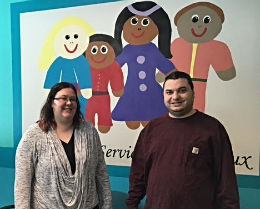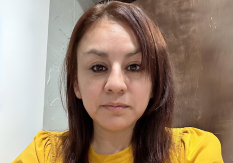|
|
|||||||||||||
Devereux Pennsylvania’s work with Dialectical Behavior Therapy (DBT) for adults with Intellectual Disability showcased by Chester County Department of Mental Health / Intellectual and Developmental Disability January 2016 NewsletterThis article was published in the January 2016 issue of the Chester County Department of MH/ADD Newsletter, “Everyday PossAbilities.” To learn more about Devereux Pennsylvania’s programs and services for adults here.
DBT was developed by Marsha Linehan, PhD, who, as a young woman struggled with many of the same mental health challenges as those she has treated. The treatment is a comprehensive cognitive-behavioral therapy with modifications, including skill building that validate and help regulate a person's emotions, teach distress tolerance, mindfulness and more. Only recently has the practice been used to help individuals with intellectual disability, but the outcomes so far are hopeful. Originally designed in the late 1980’s as an outpatient treatment for women who were suicidal and diagnosed with borderline personality disorder, DBT has grown into an effective treatment for people with a wide variety of diagnoses and emotional challenges. Individuals in DBT treatment must “buy-in,” to the comprehensive plan, learn skills, practice, and complete homework. The clinicians and staff must “buy-in” to the treatment as well, completing extensive training and practice so that DBT becomes a way of life. “Team Ben,” as one of the clinicians playfully refers to the group of professionals and family supporting Giampietro, is always communicating, ready to address concerns and challenges that arise every day. Because he lives in supported housing through Devereux, the residential staff play a key role. “Most [clients receiving DBT] receive the treatment in an out-patient setting and go home. Ben has two-to-one staff because of challenging behaviors. I’ve trained the staff to follow an hour-by-hour schedule,” said Jill Butler, the lead clinician for the team. “Ben has to study, use his skills. We do check-ins with [staff] shift changes, and there is constant training and constant learning for the staff… It’s up to us to reshape his behavior.” The self-harming and suicidal behavior began more than a decade ago for Giampietro, who recalled climbing on his family’s roof with the intention to jump when he was just 18. He was unable to control his anxiety or regulate his emotions, often calling 911 or seeking hospitalization. “Ben was a good candidate [for DBT] because of the emotional dysregulation, impulsivity and life-threatening characteristics [of his behaviors],” said Jen Benjamin, one of the clinicians on Giampietro’s team. But after just four months, Giampietro feels his progress. He and therapist Jessica Mastrangelo described one approach to talk about emotions and thoughts. “It’s like Sheldon on ‘Big Bang Theory’,” Giampietro said referring to the television show of the same name. “He will use emotional mind, but he needs to put that [emotional] thought out, and use a ‘wise mind’.” Mastrangelo explained that she and Giampietro often discuss three different mindsets: emotional mind, reasonable mind, and wise mind. “The show is an analogy to help the process,” she noted. Finding a way to help Giampietro articulate his feelings is just one small piece of the process, but one that is having an impact. Butler, who says the comprehensive DBT treatment generally lasts up to a year, believes Giampietro may be in treatment up to two years. Individuals with intellectual disability use the traditional DBT framework with modifications. It is just the beginning of the journey, but seeing successes, and building skills in just four months has given “Team Ben” momentum. Said Butler, “He knows it is for his safety. We remind him of what he can have without harming himself. A life worth living. And we’re going to help him get there.” As Giampietro and “Team Ben” continue the journey and the DBT treatment, we will be checking in periodically and providing updates. Look for more to come!
|
|||||||||||||
- Home
- About Us
- Advanced Philosophy of Care
- Mission, Values and Service
- Our Commitment to Safety
- Our History
- Senior Leadership Team
- Devereux Board of Trustees
- Annual Reports
- Devereux in the News
- Diversity, Equity, Inclusion and Belonging
- Recognizing Our Employees
- Celebrating Our Devereux Families
- Sharing Messages of Hope
- Who We Help
- Locations
- Supporting Devereux
- Training and Consulting
- Careers


 After just four
months of Dialectical Behavior Therapy (DBT), Ben Giampietro, shown here with
his therapist Jessica Mastrangelo, says he has a new outlook on life. The
dramatically positive change is a hopeful sign for his treatment team and
Devereux Foundation, which has been providing DBT for
adolescents since 2012, but just recently began treating the
29-year-old Giampietro, who uses intellectual disability services.
After just four
months of Dialectical Behavior Therapy (DBT), Ben Giampietro, shown here with
his therapist Jessica Mastrangelo, says he has a new outlook on life. The
dramatically positive change is a hopeful sign for his treatment team and
Devereux Foundation, which has been providing DBT for
adolescents since 2012, but just recently began treating the
29-year-old Giampietro, who uses intellectual disability services.






